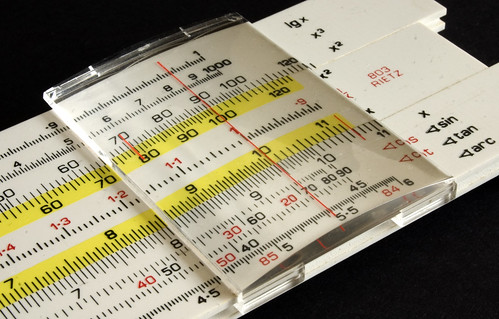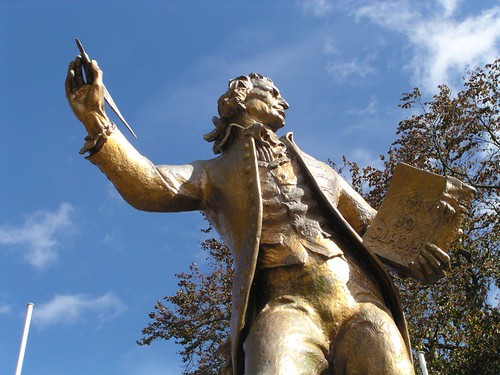 Let's get this out of the way right now. I will begrudgingly congratulate the Miami Heat for winning game 7 and becoming NBA champions. As a resident of central Texas, it should be no surprise that I was in full support of the Spurs. Needless to say, the last two games have been a little agonizing for us here in Texas.
Let's get this out of the way right now. I will begrudgingly congratulate the Miami Heat for winning game 7 and becoming NBA champions. As a resident of central Texas, it should be no surprise that I was in full support of the Spurs. Needless to say, the last two games have been a little agonizing for us here in Texas.
Now, with hockey winding down, we're left with ... baseball. Ugh. I guess it's time to start counting the days until college football starts again.
The Leafs lost. The Spurs lost. And yes, imagine this, life still goes on. So with that being said, let's get moving with another episode of the Rhubarb Report - where truth is stranger than fiction.
 The classroom is a very special place. Great things can take place in the classroom. Minds are opened, envelopes are pushed, and boundaries are expanded.
The classroom is a very special place. Great things can take place in the classroom. Minds are opened, envelopes are pushed, and boundaries are expanded.
With any luck, a well-planned teaching session will resonate with a student. Each class, lecture, or seminar has the potential to be the catalyst for change, for growth, for educational advancement. Any given session could even go so far as to evoke personal transformation in the student. A daunting task perhaps?
But what is oftentimes forgotten is that teaching provides an amazing opportunity to transform the teacher as well as the student. So it was as I prepared a guest lecture on health and wellness for the first year DPT students at Texas State University.
 Entry-level degrees. Clinical education. Certifications. Dedicated hours of clinical practice.
Entry-level degrees. Clinical education. Certifications. Dedicated hours of clinical practice.
You are doing everything you can to increase your knowledge base, expand your clinical reasoning skills, and broaden your clinical experience. It's all moving in the right direction, just the way you had imagined.
And then, someone asks you: what do you do? Or perhaps it is phrased as "what does a physical therapist do?".
There is a pause. Of course, you know what you do - right?
 Yesterday was a significant day for education in Texas. It was also a significant role model for health care, and we didn't even realize it.
Yesterday was a significant day for education in Texas. It was also a significant role model for health care, and we didn't even realize it.
HB 5 was signed into law yesterday. This legislation reforms public education at the high school level via revised testing, curriculum, and accountability. It was supported by TAMSA - Texans Advocating for Meaningful Student Assessments - a statewide, grassroots organization comprised of parents and other community members.
What is perhaps most intriguing about TAMSA is that it started as a group of eight moms from Austin and Houston who were concerned about state testing mandates. A group of angry moms turned into a movement that was a game changer in the Texas Legislature. Imagine that.
Now, take a moment to ponder what health care consumers could do with an effort like this. They could revolutionize health care.
 Health care loves specialization. So does the world of health. Although this may allow clinicians and practitioners to become more focused on specific populations or procedures, it also creates a certain degree of fragmentation within the system. It forces a perceived necessity to do different things with different groups.
Health care loves specialization. So does the world of health. Although this may allow clinicians and practitioners to become more focused on specific populations or procedures, it also creates a certain degree of fragmentation within the system. It forces a perceived necessity to do different things with different groups.
The broad expanse of health and health care is viewed as a cornucopia of disparate issues. Chronic medical conditions. Wellness. Fitness. Injury. Chronic pain. And countless other clinical entities.
We really have just one big health continuum. There is one common element to the health continuum - our daily battle against gravity.
 Here I was thinking that Section 215 was in the Alamodome or some other large Texas football stadium. Boy, was I wrong. Little did I know that it's the section of the US Patriot Act that seems to be getting everyone's attention these days.
Here I was thinking that Section 215 was in the Alamodome or some other large Texas football stadium. Boy, was I wrong. Little did I know that it's the section of the US Patriot Act that seems to be getting everyone's attention these days.
It's funny that if you are an NFL team, you can't videotape an opposing team's practices - but you want my phone records? Go ahead, take a look. Email? No worries. Web searches? Welcome to Section 215.
Oh, the razor's edge of freedom that we live on. On a day when we remember D-Day, many can somehow turn a blind eye to this sort of thing. Incredible.
Just another snippet of rhubarb to start off Episode 068.
 They say that hindsight is always perfect. After celebrating 25 years as a physical therapist, and reflecting on those years, I have come to a realization, an epiphany of sorts if you will.
They say that hindsight is always perfect. After celebrating 25 years as a physical therapist, and reflecting on those years, I have come to a realization, an epiphany of sorts if you will.
The profession of physical therapy is at a significant crossroads in this country. If we don't firmly and passionately define the profession - for ourselves and for consumers - then somebody else will, if they haven't already done so.
Our profession is struggling with the differences between "being" and "becoming". Therein lies the importance of “Vision Now”.
 "Running Injuries: Etiology And Recovery- Based Treatment" (co-author Bridget Clark, PT) appears in the third edition and fourth editions of "Clinical Orthopaedic Rehabilitation: A Team Approach" by Charles Giangarra, MD and Robert C. Manske, PT.
"Running Injuries: Etiology And Recovery- Based Treatment" (co-author Bridget Clark, PT) appears in the third edition and fourth editions of "Clinical Orthopaedic Rehabilitation: A Team Approach" by Charles Giangarra, MD and Robert C. Manske, PT.
 Allan Besselink, PT, DPT, Ph.D., Dip.MDT has a unique voice in the world of sports, education, and health care. Read more about Allan here.
Allan Besselink, PT, DPT, Ph.D., Dip.MDT has a unique voice in the world of sports, education, and health care. Read more about Allan here.
 Top 5 finalist in three categories: "Best Overall Blog", "Best PT Blog" and "Best Advocacy Blog".
Top 5 finalist in three categories: "Best Overall Blog", "Best PT Blog" and "Best Advocacy Blog".